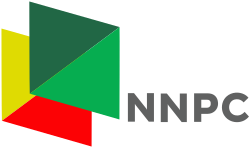Petrol Price Hits N915 in Lagos, N945 in Abuja as NNPC Adjusts Pump Rates
The Nigerian National Petroleum Company (NNPC) Limited has adjusted the pump price of premium motor spirit (PMS), commonly known as petrol, to N915 per litre in Lagos and N945 per litre in Abuja, sparking fresh concern among motorists and businesses.
This latest hike represents a N45 increase from the previous N870 price per litre in Lagos and a N35 rise from N910 in the Federal Capital Territory. The new prices were observed at several NNPC outlets across both cities as of Monday, June 23, 2025.
At the Fin Niger NNPC station along the Badagry Expressway and another NNPC outlet in Igando, Lagos residents were seen purchasing petrol at the revised rate of N915 per litre. In Abuja, the price at the NNPC station located in the Federal Housing area of Kubwa surged to N945 per litre, confirming a uniform adjustment in the capital.
Other independent and major marketers have also followed suit. At MRS stations, a firm associated with the Dangote refinery project, petrol was sold for N925 per litre, up from N875. TotalEnergies outlets revised their rates from N879 to N910, while at Oluwafemi Arowolo Petroleum station in Iba, Lagos, fuel was sold at N920 per litre.
READ ALSO: Nigeria Faces Silent Sleep Crisis With Dire Health Implications, Expert Warns
The development comes just days after the Dangote Refinery raised its ex-depot price to N880 per litre, a move expected to influence broader retail pricing. In a bid to expand its supply chain, the refinery recently announced the acquisition of 4,000 compressed natural gas (CNG)-powered trucks to support the nationwide distribution of petrol and diesel.
While the move may offer improved fuel logistics and price stabilization in the long term, some industry stakeholders are expressing concerns. The Petroleum Products Retail Outlets Owners Association of Nigeria (PETROAN) has warned that the Dangote refinery’s aggressive integration into logistics could lead to monopolistic control and threaten jobs in the downstream sector.
READ ALSO: After 58 Years, UNILAG Elevates Mass Communication Department to Full Faculty Status
Similarly, the Major Energies Marketers Association of Nigeria (MEMAN) has called for more transparency regarding the refinery’s proposed nationwide distribution strategy.
Analysts say the latest developments signal a transformative moment for Nigeria’s fuel distribution ecosystem. However, for now, the immediate reality is that consumers must brace for increased fuel costs across the board.




